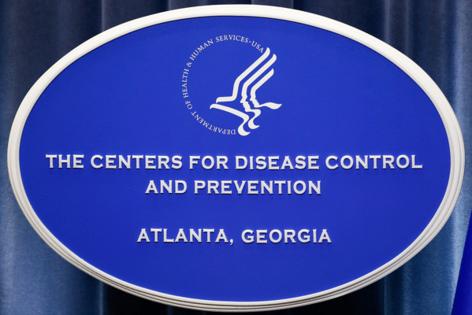Commentary: The CDC's biosecurity blind spot endangers public health and science
Published in Op Eds
A mounting biosecurity crisis is unfolding in U.S. laboratories, and the Centers for Disease Control and Prevention knows it. Newly published data from the agency show that imported monkeys infected with tuberculosis —the world’s deadliest infectious disease — are slipping through federal quarantine and into American research facilities.
But TB is only the beginning. It’s a warning signal, the mark of a much deeper danger: a broken import system that fails to keep pathogens out of the research pipeline, endangering public health and science.
Every year, TB sickens 10 million people and kills more than 1 million. In monkeys, this devastating disease also destabilizes their immune system, unleashing other pathogens they harbor. TB magnifies all disease risks circulating in imports, colonies and facilities.
The stakes are high. Monkeys imported for experimentation carry a host of dangerous pathogens: herpes B virus, simian retroviruses, antibiotic-resistant bacteria and Burkholderia pseudomallei, a bacterium so lethal it’s classified as a bioterrorism agent. TB’s appearance both in imported shipments and post-quarantine, when monkeys are released into laboratories and breeding colonies, proves the import system is porous. If TB can leak through at every stage, other dangerous pathogens can slip through with it.
Between 2021 and 2024, 69 monkeys tested TB-positive during quarantine, and another 16 were diagnosed after being cleared and sent to labs. Nearly one in five infected animals slipped past oversight, sometimes surfacing more than two years later.
The CDC’s own peer-reviewed analysis documented multiple TB strains—including one never before identified in primates in the U.S. And those are only the cases reported. The study covered a mere 0.001% of the nearly 100,000 monkeys imported during that period, meaning the true scope is almost certainly larger.
These monkeys weren’t trickling in—they came on 17 shipments from regions the CDC admits have lax biosecurity, including Southeast Asia and Mauritius. Hundreds at a time are crammed into wooden crates, flown around the globe and packed into quarantine facilities where infection can spread like wildfire. TB spreads easily through the air, meaning a single infected monkey can place workers and entire colonies at risk simply by breathing.
Once quarantine ends, there’s no requirement to report monkey TB cases to state officials or back to the CDC. Instead, everything relies on voluntary reporting by importers—companies that profit from the trade and have every incentive to conceal problems. It is, in effect, a “don’t ask, don’t tell” system for infectious diseases.
The consequences are staggering. Exposed workers don’t stay in the laboratory. They go home to their families and communities—carrying that risk with them. In Michigan, for example, laboratory workers were exposed after wild-caught monkeys from Mauritius slipped through quarantine and months of follow-up testing. These animals repeatedly tested “negative” on every tool the CDC relies on yet still developed TB.
TB doesn’t respect laboratory walls—it can infect cows used for meat and milk, companion animals and wildlife, creating long-term reservoirs of disease. The scientific fallout is equally dire. Research conducted on animals with undetected infections is compromised from the start, wasting millions of dollars and producing untrustworthy data.
The abundant risks might be easier to justify if experimenting on monkeys led to breakthroughs, but it doesn’t. The U.S. Food and Drug Administration doesn’t require monkeys for drug approval or safety testing, and decades of evidence show they rarely predict human outcomes. The continued use of monkeys is propped up not by necessity but by habit, inertia and profit.
The CDC and the U.S. Department of Health and Human Services have chosen to keep the monkey pipeline open, despite the risks, failures and waste. Congress must shut it down and redirect resources to state-of-the-art, human-relevant research. Otherwise, the next pandemic won’t come from a bat cave or a wet market — but from your local laboratory, where it may already be incubating.
____
Dr. Lisa Jones-Engel is the senior science adviser of primate experimentation in the Laboratory Investigations Department of People for the Ethical Treatment of Animals, 501 Front St., Norfolk, VA 23510; www.PETA.org.
__
©2025 Tribune Content Agency, LLC.
























































Comments